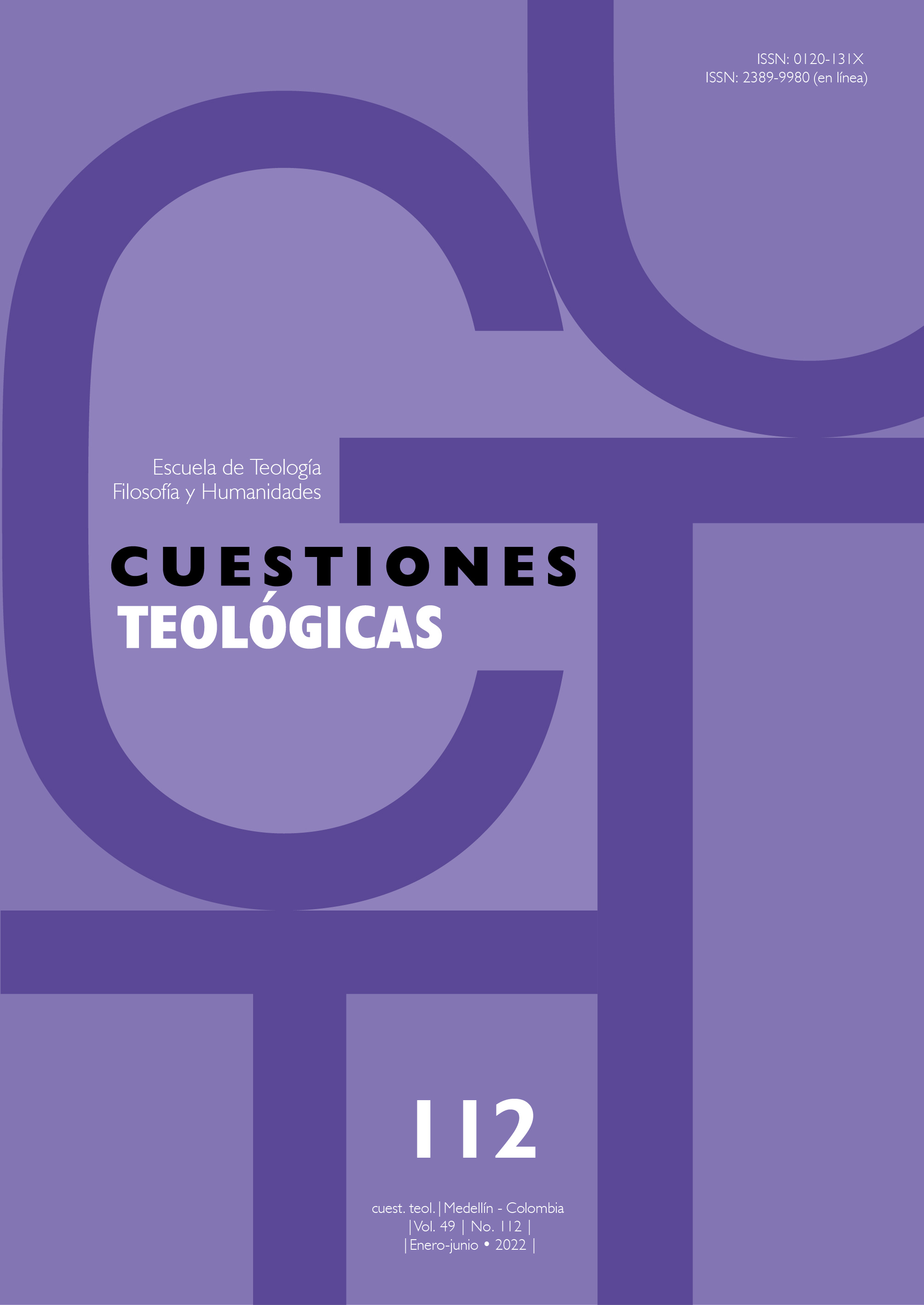From homo economicus to homo dignus. The indispensability of patristics for economics, even after the Enlightenment
Main Article Content
Abstract
Before economic science developed into an independent discipline in the eighteenth century, economic questions were the stuff of theological treatises. In summae such as those of the realist Thomas Aquinas, and in the Collectorium of the nominalist Gabriel Biel, questions of human behavior, virtues and vices in social and economic transactions and relations were addressed in the broader context of religion and theology. But as economics became independent as a scientific discipline, God disappeared from economics. In this paper, the problem is addressed that the scientific standards that apply in economics and theology seem to exclude interdisciplinary cooperation. Then it is pointed out that the opposite is in fact the case: the methods used in economics and theology are not the same, but complementary. It will become clear that it is useful to rekindle the time-honored bonds between economics and theology as scientific disciplines, in order to deepen and enrich the human view that underlies economic research. Finally, a concrete example is provided of how theologians can help economists to gain a more precise and deeper understanding of the human phenomenon, which will be of use to them as they refine their research hypotheses. It is shown that theology can be of added value by broadening the ‘economic view of human beings’. The study of Scriptural and patristic sources, especially the works of St. Augustine, can help to refine and deepen the meaning of this word, precisely with a view to theory formation in economics.
References
Augustine (1982). De Genesi ad litteram. (Vol. 1). Paulist Press.
Augustine (1994). De libero arbitrio. Augustinus.
Augustine (2005). De civitate dei. Aris and Phillips Classical Te.
Augustine (2010). Retractationes. CUA Press.
Augustine. (n.d.). Expositio quarundam propositionem ex epistola ad Romanos.
Augustine. (n.d.). Ad Simplicianum.
Bovenberg, L. (2019). Finance: A Relational Perspective. In: C. van Beuningen, K. Buitendijk (eds), Finance and the Common Good (79-97). Amsterdam, Netherlands: Amsterdam University Press.
Bruni, L & Smerilli, A. (2006). L’altra metà dell’economia. Gratuità e mercati. Città Nuova, Roma. The Dutch edition has been used for this article: De ongekende kant van de economie. Gratuïteit en markt. (2014) Nieuwkuijk: De nieuwe stad. See also Bruni, L. Il prezzo della gratuità. Città Nuova, Roma.
Coase, R. (2005). The relevance of transaction costs in the economics analysis of law. In: F. Parisi and C. Kershaw Rowley (eds.), The origins of law and economics: essays by the founding fathers (200). Cheltenham, UK: Edward Elgar.
Erasmus. (1684) Hieronymi Vita in S. Hieronymi Stridonensis Opera Omnia. Frankfurt am Main, Leipzig. Vol. 1, fol. BB 5r. Cf. Collected Works of Erasmus (1991). Toronto. Vol. 61 Patristic Scholarship. The edition of St. Jerome. (1992) J.F. Brady (Ed) – J.C. Olin (Toronto,), vol. 1, 196.
Erasmus. (2005). Exhortation à la lecture de l’Évangile. Ed. A. Vanautgaerden. 2 vols. Turnhout: Brepols.
Erasmus. (2005). Le texte Latin. Edition, annotation et introduction J.-F. Cottier. Traduction J.-F. Cottier - A. Vanautgaerden. Turnhout: Brepols.
Gigerenzer, G. (2010). Moral Satisficing: Rethinking Moral Behavior as Bounded Rationality. In: Topics in Cognitive Science 2 (528–554) (quotation at 531). https://doi.org/10.1111/j.1756-8765.2010.01094.x
Graafland, J.J. (2007). Economics, Ethics and the Market. Introduction and Applications (134, 143). London, New York: Routledge. https://doi.org/10.4324/9780203966334
Haakonssen, K. (2002) Introduction. in: Adam Smith, The Theory of Moral Sentiments (viii-xxxi) Cambridge: Cambridge University Press. https://doi.org/10.1017/CBO9780511800153.001
Kahneman, D. (2011) Thinking, Fast and Slow (7-8). London: Penguin.
Mathur, V.K. (1991). How Well Do We Know Pareto Optimality? In The Journal of Economic Education. (22) https://doi.org/10.2307/1182422
Mock, W.B.T. (2011) Pareto Optimality. In D.K. Chatterjee (ed.), Encyclopedia of Global Justice (808–809). Dordrecht: Springer. https://doi.org/10.1007/978-1-4020-9160-5_341
Littler, J. (2018). Meritocracy. Culture, Power and Myths of Mobility. London-New York: Routledge.
Oslington, P. (2014). Handbook of Christianity and Economics. New York: Oxford University Press. https://doi.org/10.1093/oxfordhb/9780199729715.001.0001
Rawls, J. (1971). A Theory of Justice (17). Cambridge Mass.: The Belknap Press of Harvard University Press.
Robbins, L. (1945). An essay on the nature and significance of economic science. London: Macmillan & Co.
Schumpeter, J. (1986). History of Economic Analysis [edited from manuscript by Elizabeth Boody Schumpeter] (25-38). London-Boston-Sydney: Allen & Unwin (paperback edition).
Schwarzkopf, S. (2020). The Routledge Handbook of Economic Theology. New York: Routledge. https://doi.org/10.4324/9781315267623
Sedláček, T. (2011). Economics of Good and Evil. The Quest for Economic Meaning from Gilgamesh to Wall Street (321, 344-345). Oxford: Oxford University Press.
Sen, A. (1977). Rational fools: A critique of the behavioral foundations of economic theory. Philosophy & Public Affairs (317-344).
Sen, A. (1987) On ethics and economics (The Royer Lectures). Oxford: Blackwell.
Sløk, A. (2020). Guilt. In: S. Schwarzkopf (ed.), The Routledge Handbook of Economic Theology (72-80). New York: Routledge. https://doi.org/10.4324/9781315267623-9
Smith, A. (1759). The Theory of Moral Sentiments. Oxford University Press. https://doi.org/10.1093/oseo/instance.00042831
Van Damme, E. (2016). Waarom doceren wij ouderwetse economie? In A. L. Bovenberg, & F. Haan (Eds.). Preadviezen van de Koninklijke Vereniging voor de Staathuishoudkunde 2016: Economieonderwijs (pp. 161-171).






